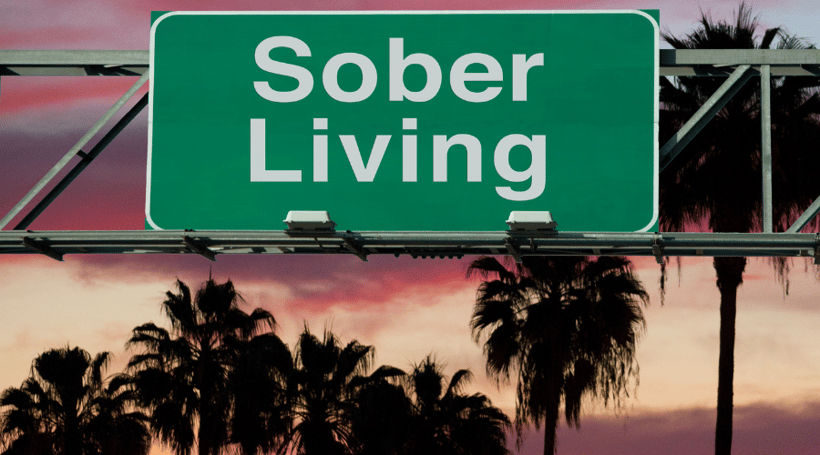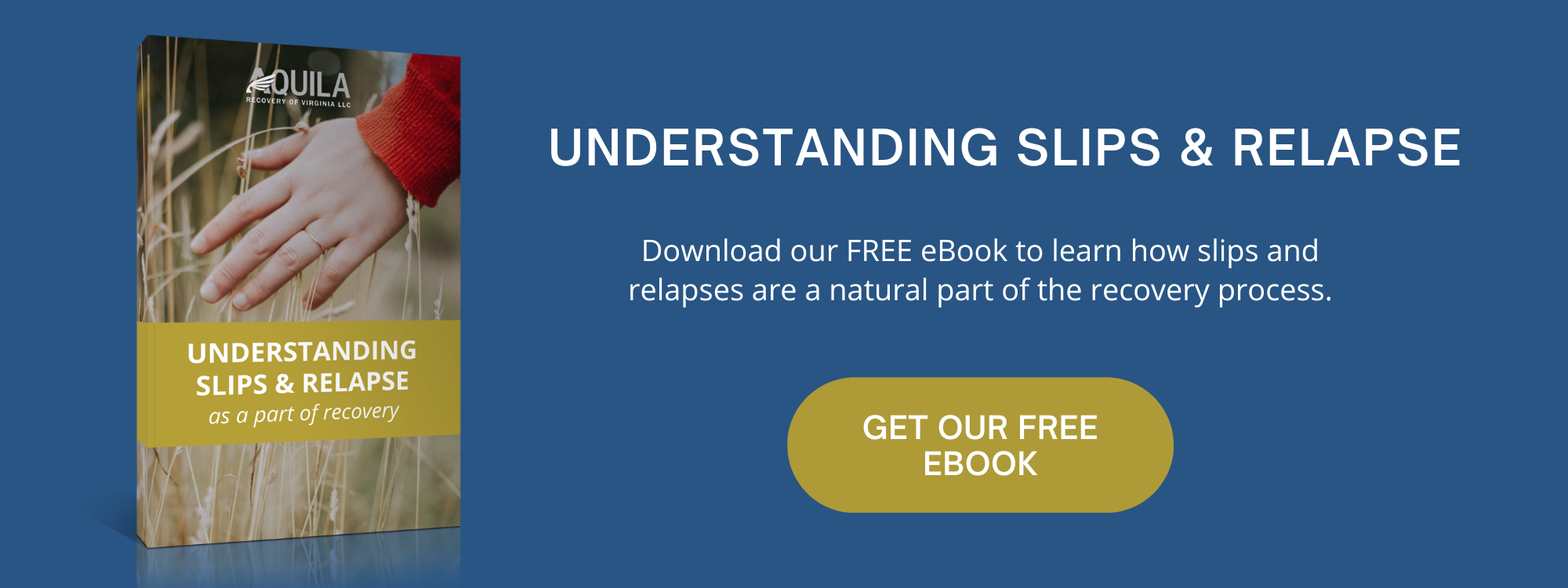6 Best Apps for Overcoming Alcohol Addiction
Addiction is a lonely and difficult journey, but you don't have to be alone on your road to...

Are you ready to take control of your relationship with alcohol and embrace a dry lifestyle? In this blog, we will provide you with expert advice and practical tips and tricks to help you stay dry from alcohol. We'll start by understanding the need to stay dry and exploring the health implications of excessive alcohol consumption. Then, we'll dive into setting realistic goals and effective strategies to handle alcohol cravings. Building a support network for sobriety is crucial, so we'll discuss how to identify and avoid personal triggers. Additionally, we'll explore healthy alternatives to drinking, including the role of exercise in maintaining sobriety. Saying 'no' to alcohol can be challenging, but we'll guide you on overcoming the 'all or nothing' mindset. Lastly, we'll emphasize the importance of tracking your progress toward sobriety and discuss whether a month of abstinence can make a significant difference. Get ready to transform your relationship with alcohol and lead a healthier, happier life!
Understanding the need to stay dry from alcohol is crucial for personal health and well-being. It's essential to have tips for avoiding alcohol in social situations and managing peer pressure. Finding alternative activities and coping mechanisms to replace alcohol can greatly help in staying dry. Seeking professional help and support is vital for those struggling with alcohol addiction. Staying dry from alcohol has long-term benefits and can have a positive impact on one's life. By understanding the importance of staying dry, individuals can make informed choices to prioritize their mental and physical health.
Excessive alcohol consumption can have serious health implications. It can lead to liver damage, and heart disease, and increase the risk of certain cancers. Moreover, it can negatively impact mental health, causing depression, anxiety, and cognitive impairment. Understanding these risks is crucial in motivating individuals to make healthier choices and reduce their alcohol consumption. Staying dry from alcohol involves setting specific goals, finding alternative activities or hobbies to replace drinking, seeking support from friends or support groups, and considering professional help if needed. It's important to remember that everyone's relationship with alcohol is different, so individualized strategies for staying dry are key. By taking these steps, individuals can improve their overall health and well-being.

When embarking on a journey to stay dry from alcohol, it's crucial to set realistic goals that align with your individual needs and motivations. Understanding your reasons for wanting to cut back or eliminate alcohol consumption is the first step toward success. By identifying specific and achievable goals, you can create a roadmap for your journey to a healthier lifestyle. Seeking support from friends, family, or a supportive community can provide invaluable encouragement and accountability. Additionally, finding alternative activities or hobbies to replace drinking can help occupy your time and redirect your focus. Practicing self-care and stress-management techniques can also be effective in coping with cravings and triggers. Tracking your progress and celebrating milestones along the way will not only keep you motivated but also highlight the positive strides you've made.
Setting realistic goals is crucial in maintaining a dry lifestyle. Start with achievable objectives and gradually increase them over time. Engage in hobbies or activities that provide a fulfilling alternative to drinking. Surround yourself with supportive friends and family who respect your decision. It's important to establish healthy coping mechanisms to deal with stress and emotional triggers. This may include exercise, meditation, or seeking support from a therapist. Stay motivated by reminding yourself of the benefits of staying dry, such as improved physical health and better sleep. By implementing these strategies, you can effectively handle alcohol cravings and maintain your sobriety.
Surrounding yourself with understanding and supportive friends and family members is crucial when building a support network for sobriety. Additionally, seeking out specialized support groups or therapy sessions for individuals struggling with alcohol addiction can provide a safe space for sharing experiences and gaining guidance and support. Creating a daily routine that incorporates healthy habits like exercise, meditation, and self-care activities can also contribute to maintaining sobriety. Better Health highlights how we can find alternative ways to cope with stress and negative emotions, such as engaging in hobbies or practicing mindfulness techniques, can help minimize the temptation and triggers associated with alcohol use. Regularly checking in with a sponsor or trusted individual who can provide guidance and support can also help in staying accountable.
Building a support network is crucial for maintaining sobriety. This can include friends, family, support groups, or therapists. It's important to identify the triggers that may lead to alcohol consumption. These triggers can be specific situations, people, or emotions. Once you've identified your triggers, make a plan to avoid or cope with them. This could involve finding alternative activities or seeking support from your network. Developing healthy coping mechanisms such as exercise, meditation, or hobbies can help you stay focused on your sobriety goals. Don't be afraid to ask for help when needed. Reach out to your support network or seek professional assistance if you're struggling to stay dry from alcohol.

Finding activities and hobbies that don't involve alcohol, such as engaging in exercise or pursuing creative outlets, can be a great way to explore healthy alternatives to drinking. Surrounding yourself with supportive friends and family who understand and respect your decision to stay sober is also important. Additionally, you can explore non-alcoholic drink options like mocktails or flavored seltzers to still enjoy social gatherings without the negative effects of alcohol. Practice self-care and stress management techniques such as meditation or deep breathing exercises to help cope with cravings or triggers. Seeking professional help, such as therapy or support groups, is also an important step in addressing any underlying issues or challenges related to alcohol.
Regular physical activity can indeed help in maintaining sobriety. Health Harvard discusses how exercise releases endorphins, which can enhance mood and reduce cravings. It also provides a healthy outlet for stress and emotions, supporting a sober lifestyle. Additionally, regular exercise can improve overall well-being.
Understanding the risks and consequences of excessive alcohol consumption is crucial in realizing the importance of saying 'no' to alcohol. By setting personal boundaries and learning to resist peer pressure, individuals can protect their physical and mental well-being. Instead of turning to alcohol, finding healthier alternatives like engaging in yoga or sipping on a refreshing mocktail can provide a positive outlet for stress or social situations. Building a support network of friends and family who respect one's decision to abstain from alcohol can provide the necessary encouragement and understanding. And for those struggling with alcohol addiction, seeking professional help is essential in overcoming the challenges associated with alcohol use disorder.
The 'all or nothing' mindset can often present itself as a barrier when striving to stay dry from alcohol. Instead of focusing on what you're giving up, shift your perspective to what you're gaining by abstaining from alcohol. Take the opportunity to explore alternative activities and hobbies to fill the void previously occupied by drinking. Surround yourself with a supportive network of individuals who understand and respect your decision to stay dry. Remember to practice self-care and seek out healthy coping mechanisms for stress and emotions that may have previously been managed through alcohol. By adopting a more balanced mindset, you can overcome the challenges associated with staying sober.

Tracking your progress toward sobriety involves several key strategies. Keeping a journal can be a helpful tool to monitor your alcohol consumption and identify triggers or cravings. Setting realistic goals is important for reducing or eliminating alcohol from your life. Seeking support from friends, family, or support groups like Alcoholics Anonymous provides a strong network of understanding individuals. Finding healthy alternatives to drinking, such as exercise or hobbies, helps redirect your focus. Staying accountable by sharing your progress with a trusted friend or counselor ensures you have ongoing support. Additionally, avoiding situations or people that may tempt you to drink is crucial for maintaining sobriety.
A month of abstinence from alcohol can have a significant impact on your health and well-being. It can improve liver function, reduce the risk of liver disease, promote better sleep, hydration, and increase energy levels. Moreover, it offers an opportunity to reassess your relationship with alcohol and make healthier choices in the long run.
In summary, staying dry from alcohol is a personal decision that requires dedication and support. It's important to understand the health implications of excessive alcohol consumption and set realistic goals for yourself. Building a support network and identifying your triggers can greatly aid in maintaining sobriety. Exploring healthy alternatives to drinking, such as exercise, can also be beneficial. Remember, saying 'no' to alcohol is essential, and overcoming the 'all or nothing' mindset is crucial for long-term success. Lastly, tracking your progress toward sobriety and celebrating milestones can motivate you along the way. If you're ready to take control of your relationship with alcohol, contact us for expert advice and tips on staying dry.
Addiction is a lonely and difficult journey, but you don't have to be alone on your road to...
Alcohol detox is the first step toward recovery from alcohol addiction. It can be a challenging and...
Alcohol addiction is a serious issue that affects millions of people worldwide. It can lead to...